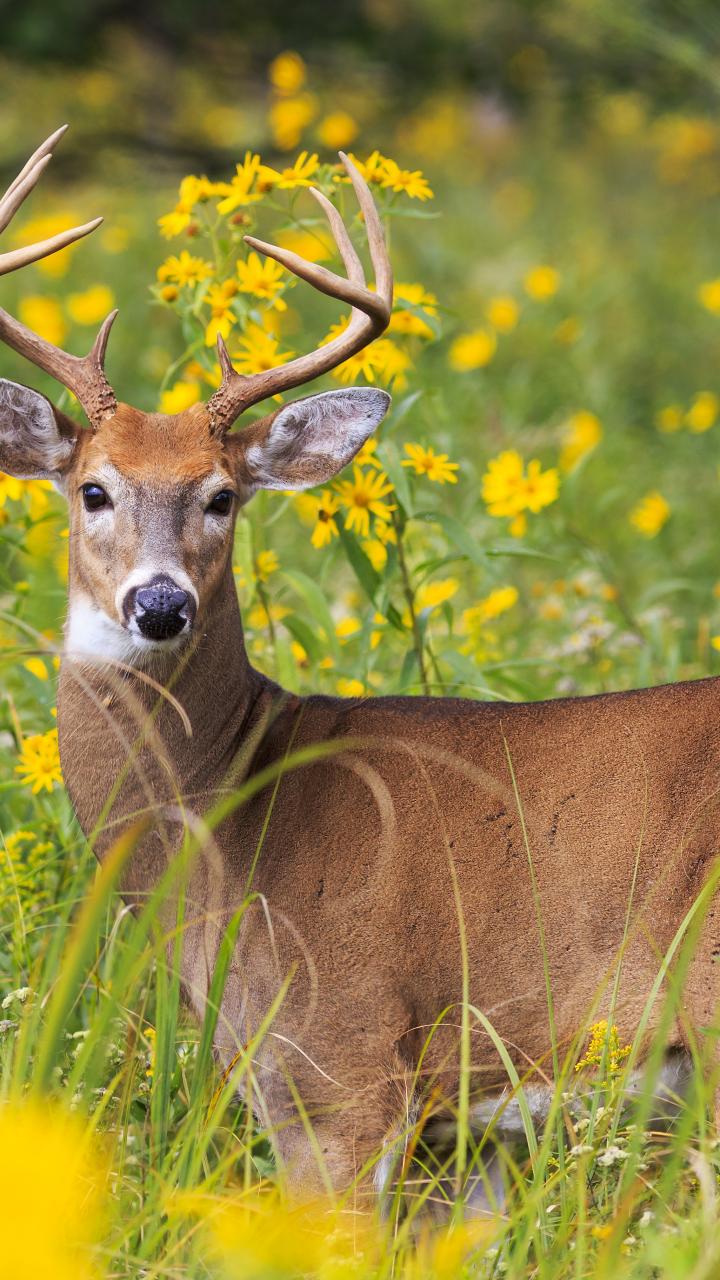A recent study by USDA found that one-third of samples collected from free-ranging white-tailed deer in Illinois, Michigan, New York, and Pennsylvania had SARS-CoV-2 antibodies, including 18% of the samples collected in New York. Previous work by USDA and Cornell University had found that it was possible for deer to be infected with the virus that causes COVID-19, so the fact that the researchers found COVID antibodies in deer in the wild is not surprising.
The presence of SARS-CoV-2 antibodies is an indication that the deer had been exposed to the virus, and their presence does not necessarily indicate current infection. It is not known how free-ranging deer were exposed to the virus, but it is speculated that it could have been through people, the environment, other deer, or another animal species.
There is no evidence that animals, including deer, are playing a significant role in the spread of COVID-19, and based on existing evidence the risk to people from animals is low. Most people will not come into direct contact with wildlife and “best practices” for interacting with wildlife that existed pre-COVID, still apply. Consider the NYSDEC – if you care, leave it there. If wildlife is injured or trapped in a place it should not be, contact a NYSDEC regional wildlife office, wildlife rehabilitator, or nuisance wildlife control operator.
Continuing to follow “best practices” is also true for hunters and trappers who may harvest deer or other game during the fall seasons. Wear gloves when field dressing and processing game and disinfect equipment.
People like wildlife rehabilitators and captive deer owners who come in to direct contact with wild or captive deer should limit contact when and where possible and follow proper biosecurity procedures when direct contact needs to occur such as wearing gloves and a facemask, thoroughly washing hands before and after contact, and properly disinfecting equipment.
And, of course, the best way to minimize the risk of contracting or spreading COVID-19 is to get vaccinated.
USDA APHIS Q&A: Results of Study on SARS-CoV-2 in White-tailed Deer: https://www.biorxiv.org/content/10.1101/2021.07.29.454326v1.full.pdf
Questions and Answers: Results of Study on SARS-CoV-2 in White-tailed deer
Other resources:
CDC COVID-19 and Animals
World Organization for Animal Health (OIE) Questions and Answers on COVID-19
A recent study conducted by the USDA and Cornell University demonstrated that whitetail deer fawns could be infected with the virus that causes COVID-19. One important finding of this study was that other fawns in the same room that were physically separated from the inoculated fawns also became infected with the virus. This suggests that whitetail deer can transmit the virus from deer to deer even if there is no direct contact. Although none of the fawns developed severe illness, the studied group of animals was small, and follow-up studies are now being performed.
Disclaimer: Much more remains to be studied concerning COVID-19 in captive deer. Current understanding is that the SARS-CoV-2 virus is primarily transmitted from person to person. However, out of an abundance of caution, it is recommended that animals be handled as possible carriers of the virus. This is a constantly evolving situation, and our understanding of the virus will improve as the outbreak continues.
For infected owners
- Out of an abundance of caution, it is recommended that those ill with COVID-19 limit contact with captive deer.
- Have another member of your household perform routine animal care chores.
- If you must care for your deer, then wear a facemask.
- Wash your hands before and after contact with your deer.
Remember that you may be infected with the SARS-CoV-2 virus even if you feel healthy. Out of an abundance of caution, it is recommended that you wear a face mask whenever you are around, caring for, or handling your deer.


